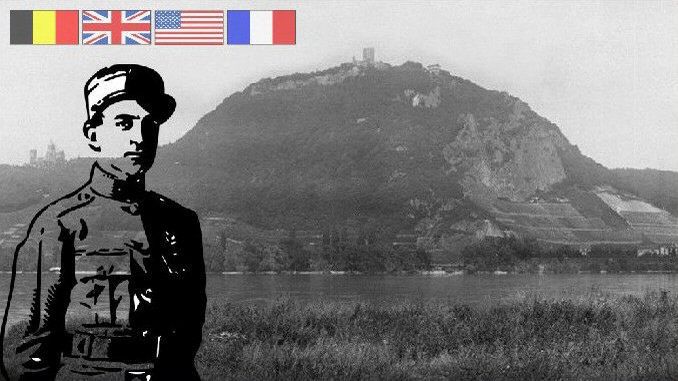
The Siebengebirge area, close to Bonn and Cologne, has an eventful history. Regional history comes in the context of German history.
During the last about 2,000 years, people of numerous nationalities have come to the Rhine. Celts, Teutons, Romans, Frenchmen, Prussians, just to mention some of them.
The Rhineland has always been a melting pot, and Rhinelanders are a mixture by birth.
“Who once has settled here, to him, this is his homeland”
thus the Roman historian Tacitus quotes the Germanic Ubii.
Therefore, the history of the Seven Mountains in the Rhineland is also a bit German and European history.
In a nutshell
During the Roman Era, the Rhine was the border between the Roman Empire and the free Germania. In the Middle Ages, the front between regional powers, the Archbishopric of Cologne and the Duchies of Sayn and Berg, went right through the Siebengebirge. Then, in the early modern times, the Prussian Kings again and again claimed the Duchy of Berg. In the French Era, the Rhine again became the border. The now Grand Duchy of Berg became a French model state with Napoleon at the top.
In 1815, the Congress of Vienna gave the Rhineland to Prussia. As Prussian citizens, the Rhinelanders lived to see the German Empire, the First World War and the Weimar Republic. Finally, death and destruction in the Second World War, the new start with the Petersberg Agreement and the today’s federal city of Bonn.
Siebengebirge history, 100 years ago
About a hundred years ago, the Allied occupation of the Rhineland began. According to the Rhineland Agreement, signed at Versailles with the Peace Treaty, the Rhineland was to be demilitarized, and allied troops were to occupy the left bank and bridge heads in Cologne, Coblenz and Mainz. The war was over, but not for the people on the Rhine, and not for the occupation soldiers from far away either.
The sequel to my emigrants’ story At home on the Rhine and in America is set in the Rhineland between 1914 and 1922.
This is not history for history’s sake.
I am so grateful that, after the horrors of the 20th century, we are together in the Western community of values, and defend liberty, open societies, tolerance, and compassion. I, for one, am not willing to leave the floor to the hatemongers of the 21st century. We all lose if we allow what separates us to grow stronger than what brings us together.

Be the first to comment